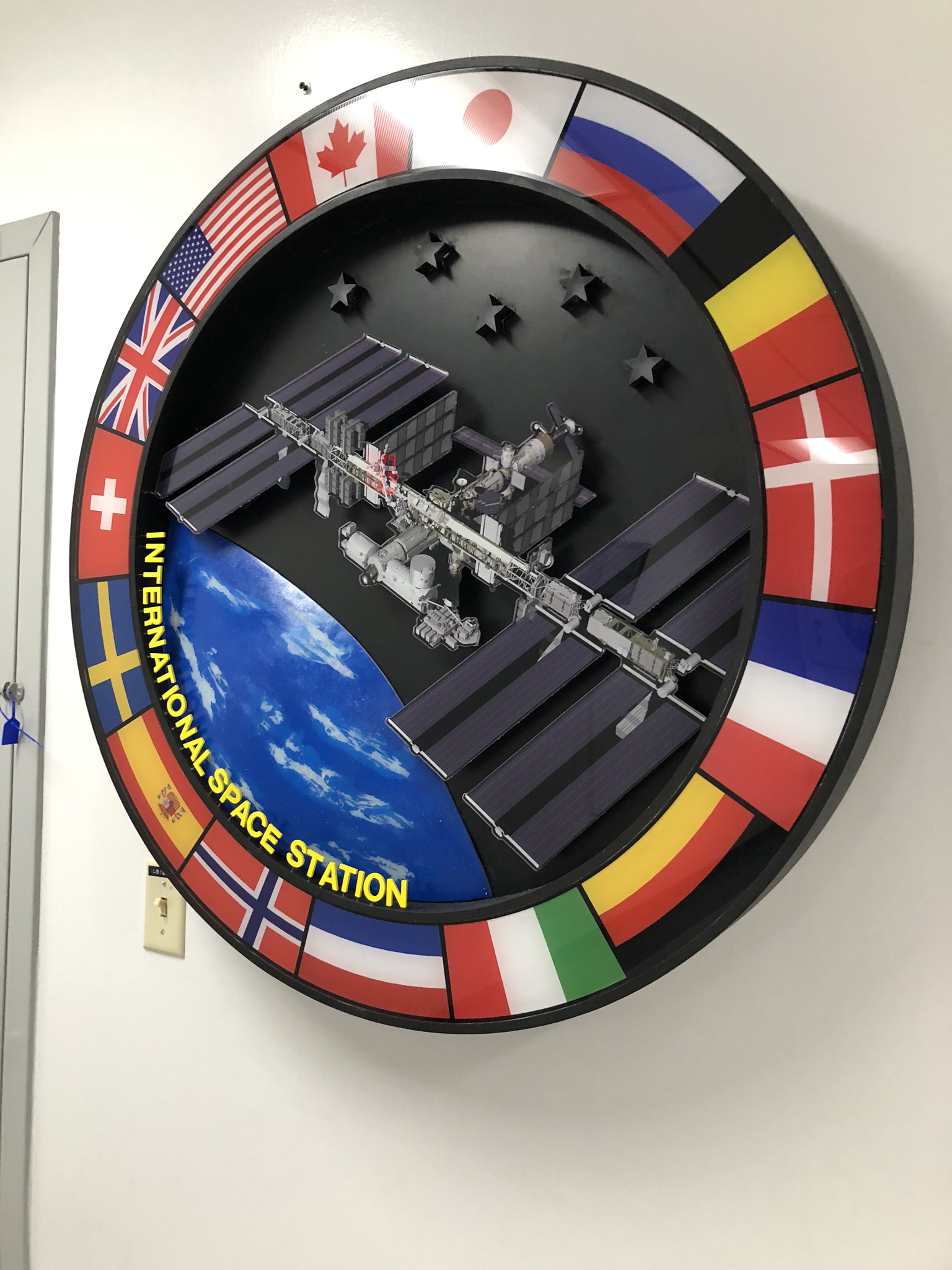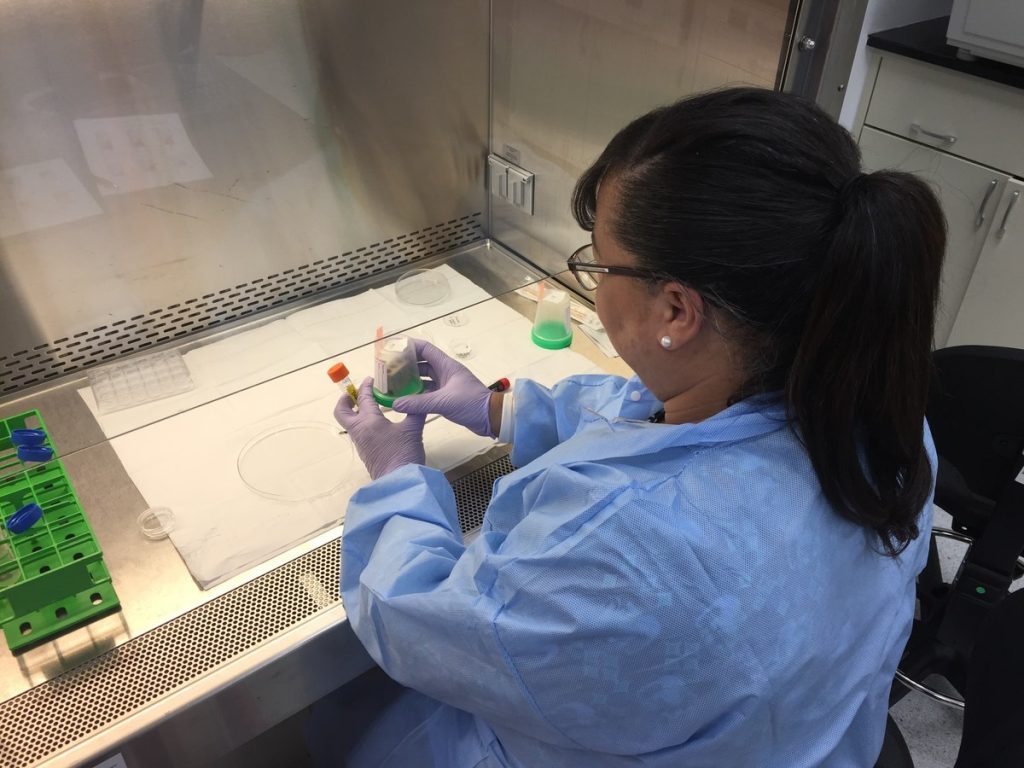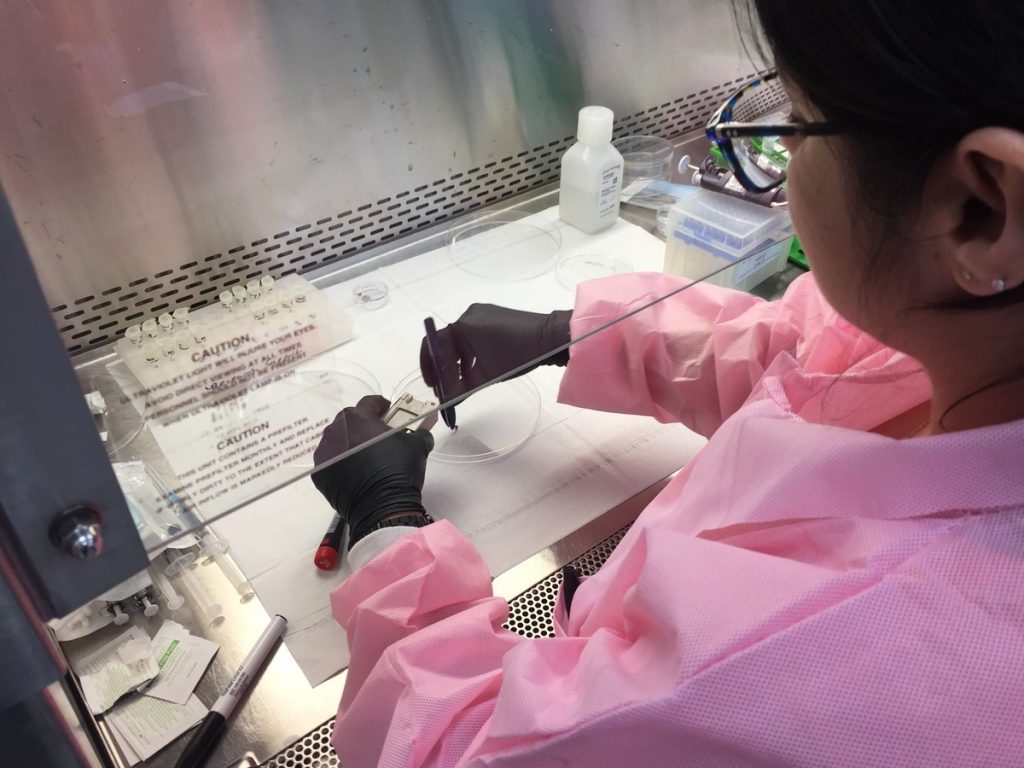After several years of planning, optimizations and numerous launch attempts, the Allen lab has successfully launched their research on cardiovascular cells to the International Space Station (ISS). Dr. Josephine Allen and her “space team”, Dr. Marina Scotti and Bryan James (Ph.D. candidate), are studying the stressors of microgravity and the launch process on the cardiovascular system in a study funded by NASA and the Center for the Advancement of Science in Space (CASIS). Although relatively healthy and physically fit, astronauts return from space travel with cardiovascular disease (CVD) -like symptomology generally termed cardiovascular deconditioning. Many of these symptoms are common to age-related CVD, the current leading cause of mortality in the United States. Dr. Allen and her team will study the transcriptomic alterations of vascular endothelial cells, smooth muscle cells and patient-derived endothelial progenitor cells in low orbit on the ISS compared to ground control samples.
Drs. Allen and Scotti worked on site at the Kennedy Space Center preparing their precious cargo for the SpaceX CRS-17 mission that culminated in the launch of the Falcon 9 rocket, carrying the Dragon cargo spacecraft in the early morning hours of May 4th. The safe return of the SpaceX CRS-17 Dragon cargo on June 3rd, brought with it the team’s hopes to find treatable pathways associated with CVD that can protect our future astronauts and help those with CVD here on Earth.
Dr. Allen discusses more about her experience sending cells to space with the UF MSE Department https://mse.ufl.edu/spacex-cs-17-proves-to-be-the-lucky-number-for-josephine-allen-ph-d/
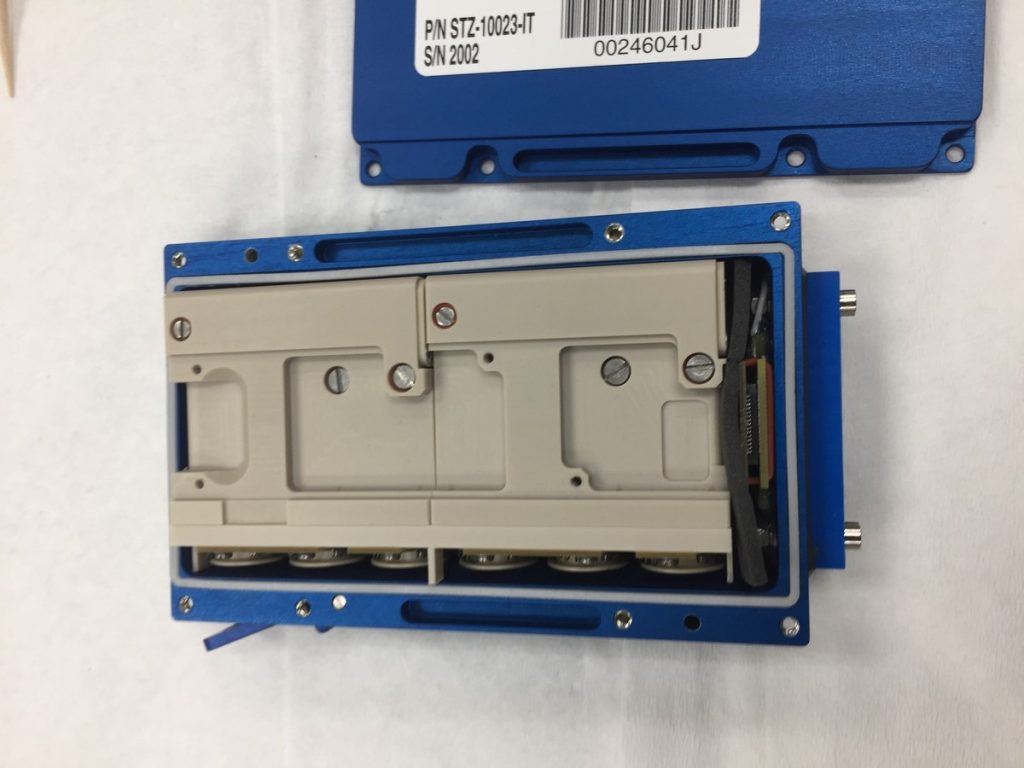 The fully loaded hardware being loaded into its experiment container
The fully loaded hardware being loaded into its experiment container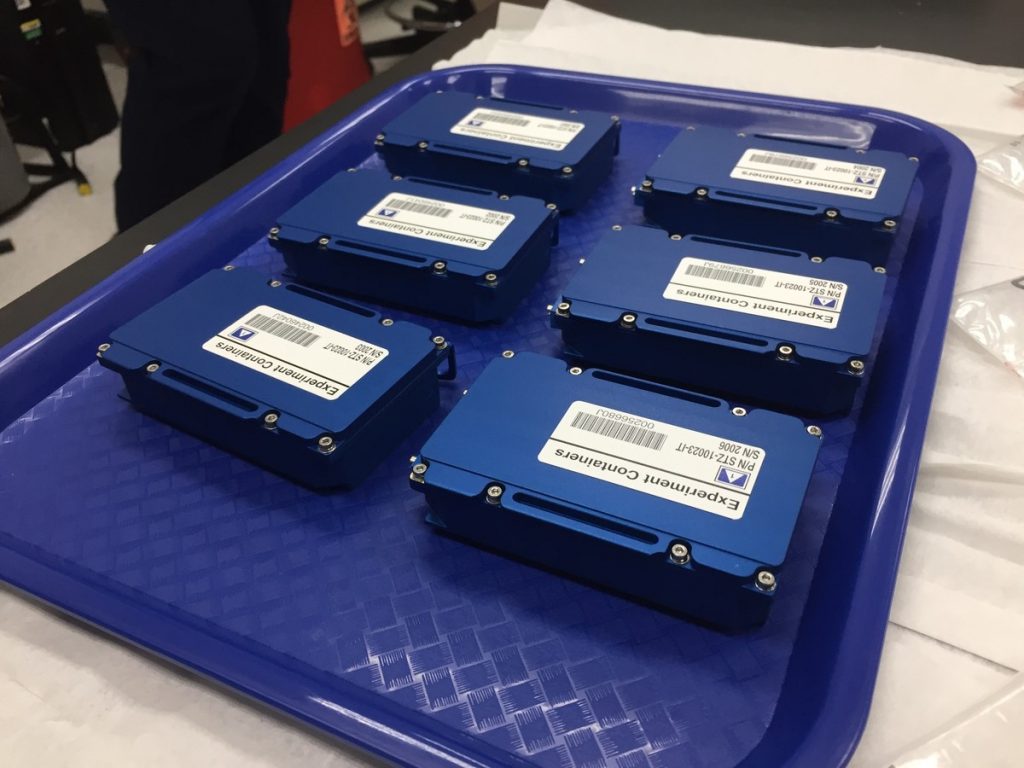 All six sets of hardware loaded and ready for the ISS
All six sets of hardware loaded and ready for the ISS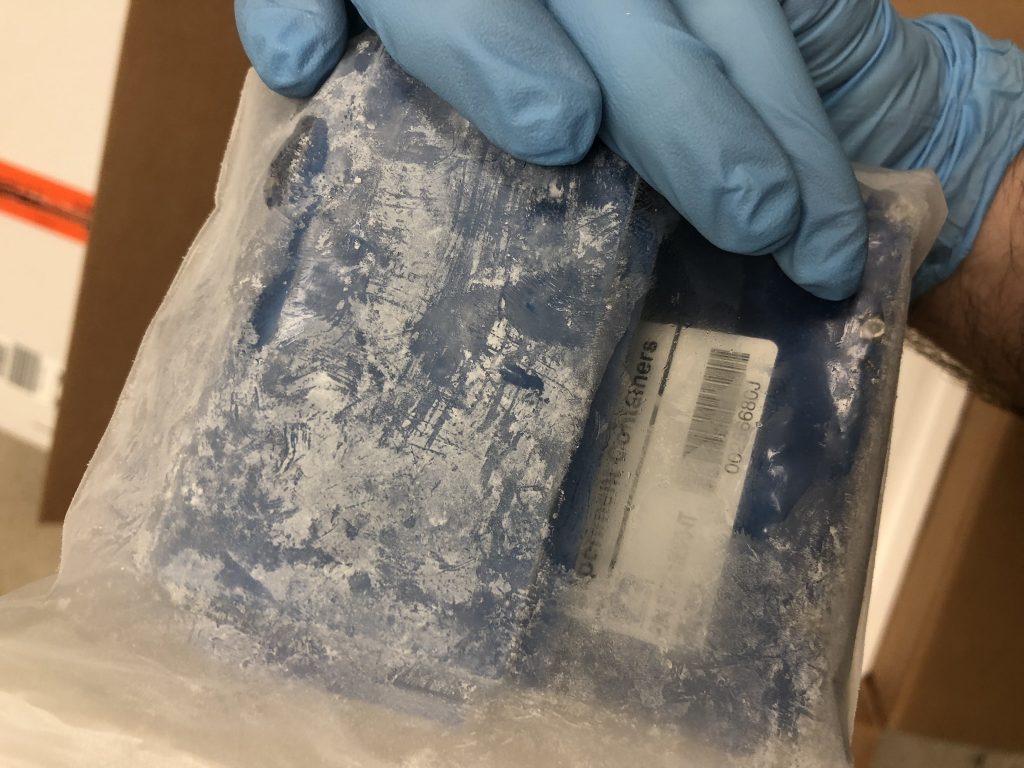 The samples returned safely to the Allen Lab at UF
The samples returned safely to the Allen Lab at UF
